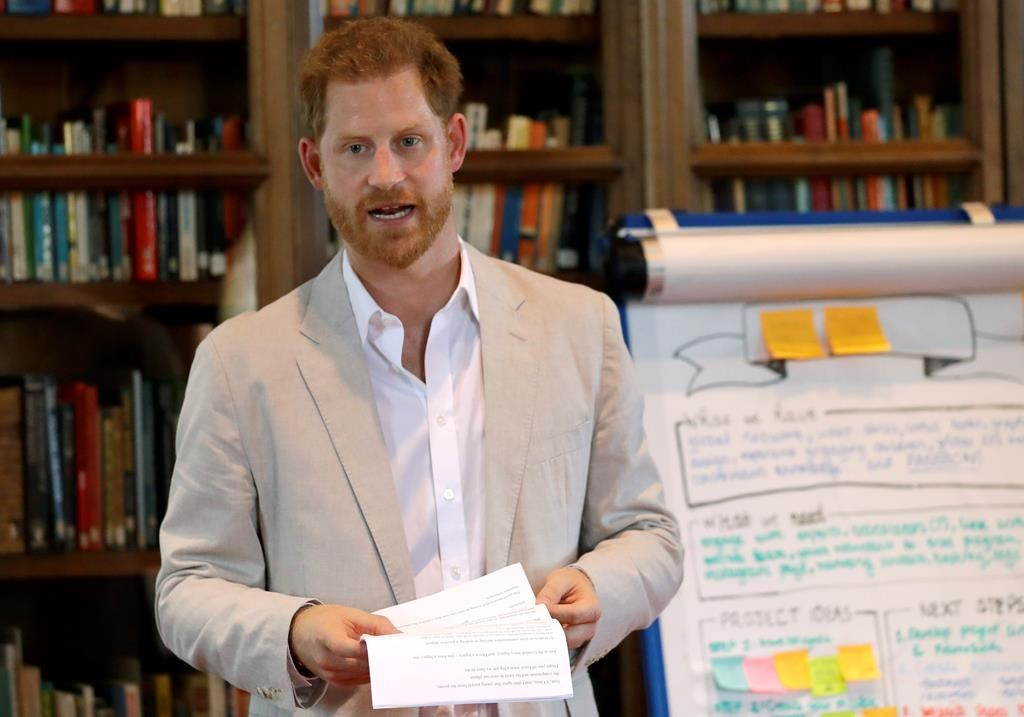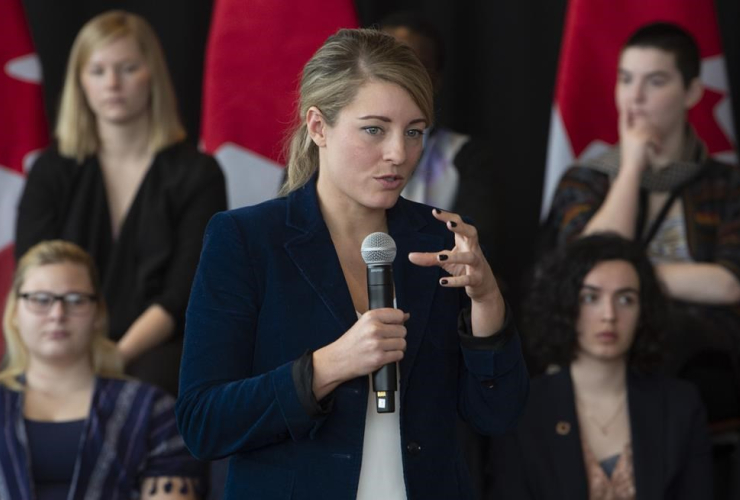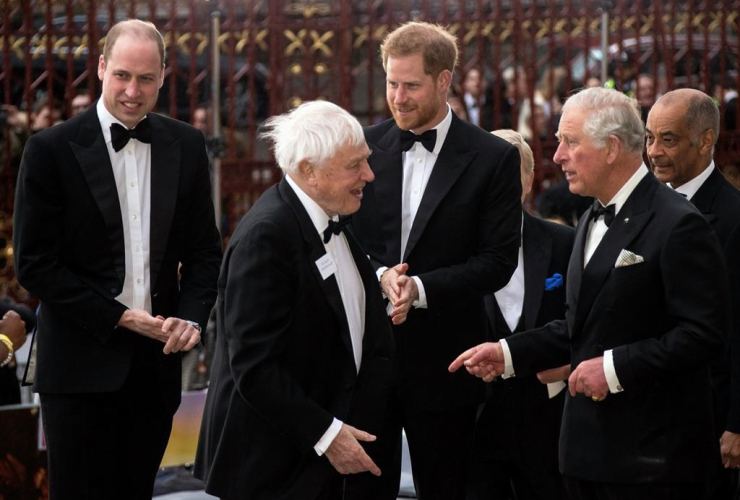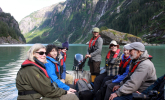The eco-minded Prince Harry is embarking on a massive travel sustainability initiative in partnership with key travel providers. They aim to improve the practices of the global industry amid an ever-increasing number of travellers.
The Duke of Sussex picked Amsterdam, a city hit hard by over-tourism, to announce Travalyst at a news conference Tuesday with his partners, Booking.com; TripAdvisor; Visa; China's largest travel company, Ctrip; and the Ctrip-owned fare aggregator Skyscanner.
The long-term initiative is focused on tackling the travel industry's impact on climate change, improving wildlife conservation, and protecting the environment in top tourist spots around the world. It aims to increase the amount of tourism dollars that go to local communities, and find answers to over-tourism.
"Travel has the unparalleled power to open people's minds to different cultures, new experiences, and to have a profound appreciation for what our world has to offer," the duke said in a statement shared with The Associated Press ahead of the formal announcement.
"As tourism inevitably grows, it is critically important to accelerate the adoption of sustainable practices worldwide, and to balance this growth with the needs of the environment and the local population. Bringing companies, consumers and communities together is our best chance to protect destinations and ecosystems for future generations," he added.
Harry drew criticism this summer when he and his family took a private jet to go on vacation, despite the flight's carbon impact on the planet. They had flown to the home of singer Elton John, who said the aircraft offered them needed privacy and protection, and was carbon-neutral because it was offset by a contribution to Carbon Footprint.
"I spend 99% of my life travelling the world by commercial" aircraft, Harry said Tuesday. He said he would take a private jet only when circumstances called for it, and would offset the carbon footprint.
Among issues the coalition will focus on is improving on-the-ground travel and tourism entrepreneurship in local communities.
Last year, the number of international trips taken globally reached 1.4 billion, a number reached two years faster than originally projected by the United Nations' tourism agency, the World Tourism Organization. According to the World Bank, the number of trips taken annually by people around the globe has more than doubled since 2000.
Travel and tourism fed $8.8 trillion into the global economy in 2018, according to the World Travel & Tourism Council. In 10 years, the number of tourists visiting countries in emerging markets will reach 1 billion annually, comprising 57 per cent of all international trips, the U.N. agency said.
Gathering service providers into one coalition is a feat unto itself in a competitive industry with piles of profit on the table. Other areas explored will include cleaner aviation fuel, more travel experiences focused on sustainability, and educating tourists on the footprints they make and the waste they leave behind.
"The commitment from these different brands to work together and help build a global network of like-minded social entrepreneurs, NGOs and policymakers is truly inspiring," said Gillian Tans, chairwoman of Booking.com. "Collaboration is the only path forward if we want to create a real paradigm shift in travel."
Bryan Dove, chief executive for Skyscanner, said the travel industry has an obligation "to preserve our world for future generations to explore and enjoy — but to do this we need to act now, as change won't happen overnight."
Harry began approaching potential partners for the coalition about two years ago. Specific programs and projects will likely be launched within the next 18 months. Harry will be actively at the helm.
Consumers are hungry for change, with 71 per cent of global travellers telling Booking.com they think travel companies should offer more sustainable travel choices, and 68 per cent saying it was important that their travel dollars support local communities.
At Skyscanner over the last 12 months, 10 million travellers selected the lowest carbon emission flight option, for instance.
Travalyst will be the first initiative to fall under the Sussex Royal charitable foundation of Harry and Meghan after they spun off from the joint trust established by his brother, Prince William, and duchess Kate.
One of the worst things the
One of the worst things the travel industry has done is to eliminate trains as an option. If you ask the travel agent about going from A to B, the agent will enter that into the computer and it will spit out flying options only. For example if you want to go from Vancouver or New Westminster to Seattle, you will not be told that there is a convenient train as an option.
The result is a lot of unnecessary flying, and people deprived of more enjoyable civilized travel.





Comments